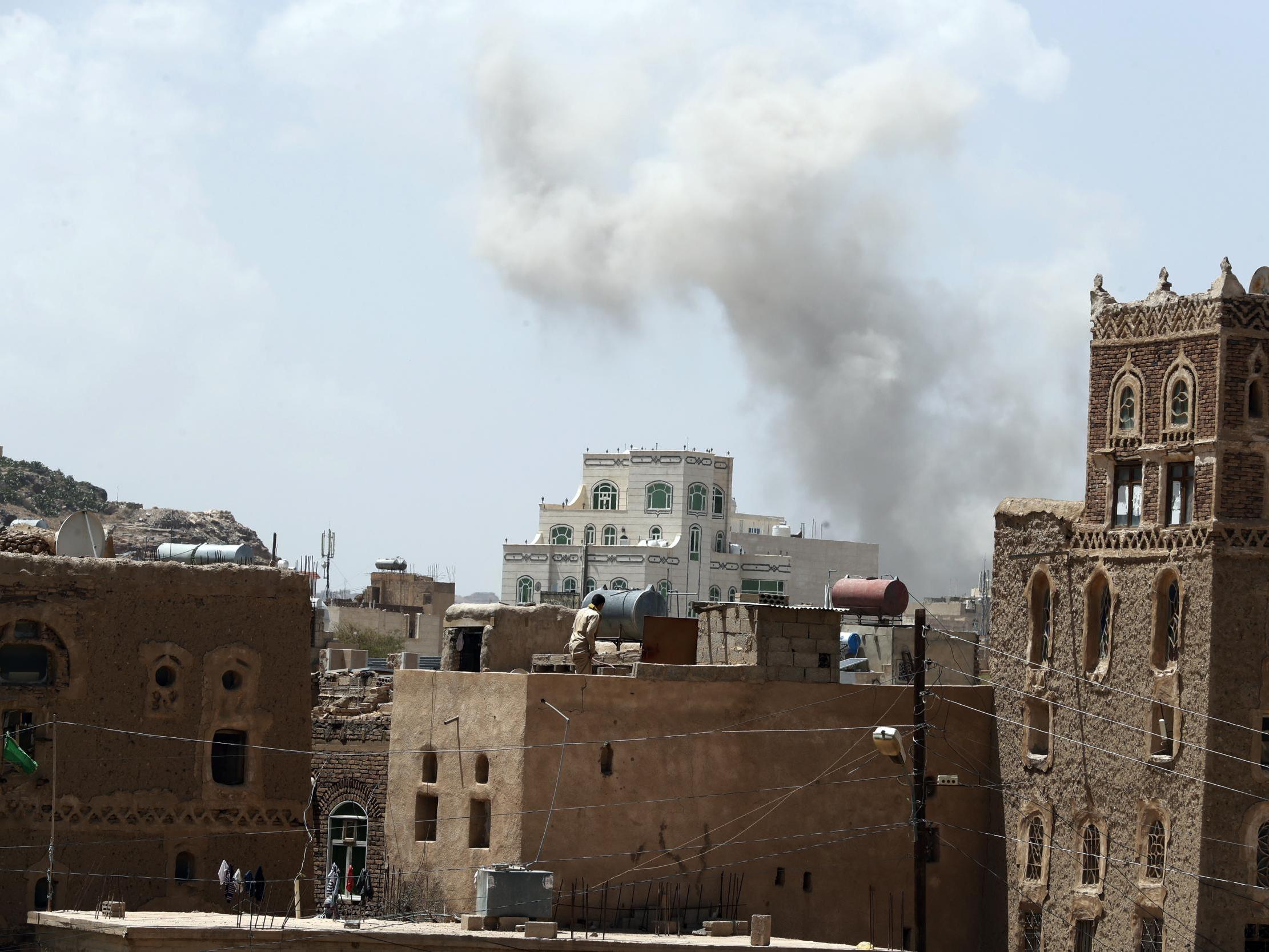Four journalists in Yemen sentenced to death by Houthi court on ‘trumped-up’ spying charges
Human-rights group says accusations of collaborating with the enemy are false

Your support helps us to tell the story
This election is still a dead heat, according to most polls. In a fight with such wafer-thin margins, we need reporters on the ground talking to the people Trump and Harris are courting. Your support allows us to keep sending journalists to the story.
The Independent is trusted by 27 million Americans from across the entire political spectrum every month. Unlike many other quality news outlets, we choose not to lock you out of our reporting and analysis with paywalls. But quality journalism must still be paid for.
Help us keep bring these critical stories to light. Your support makes all the difference.
A court run by Yemen’s Houthi rebels has sentenced four journalists to death after their conviction on spying charges, their lawyer has said.
The four were among a group of 10 journalists detained by the Iran-backed rebels and accused of “collaborating with the enemy”, in reference to the Saudi-led coalition that has been at war with the Houthis since 2015, Abdel-Majeed Sabra said.
Amnesty International last year condemned the charges as “trumped-up”. The rights group said the detained reporters were beaten, deprived of water and forced to hold cinder blocks for several hours.
The lawyer said the Houthis did not allow defence lawyers to attend the trial. The journalists will be allowed to appeal against the verdict.
He identified the four sentenced to death as Abdel-Khaleq Amran, Akram al-Walidi, Hareth Hamid and Tawfiq al-Mansouri.
The court in the rebel-held capital, Sana’a, convicted the other six journalists on similar charges, including “spreading false news and rumours” to aid the coalition, but ordered their release after time served, he said.
Nine journalists were arrested in a raid on a hotel in Sanaa in June 2015, and the tenth was detained at his home in Sana’a that August.
Yemen, the Arab world’s poorest nation with a population of 28 million people, has been convulsed by civil war since 2014, when the Houthis took control of the country’s north, including the capital. The Saudi-led military coalition intervened against the Houthis the following year, conducting relentless airstrikes and a blockade of Yemen.
The conflict has killed more than 100,000 people and created the world’s worst humanitarian crisis, leaving millions suffering from food and medical care shortages.
Both sides of the conflict have violated press freedoms, according to the New York-based Committee to Protect Journalists.
Despite being the target of a prolonged Saudi bombing campaign, the Houthis have fought to a standstill their vastly better equipped and financed opponents.
Amnesty has criticised the UK for selling arms to Saudi Arabia.
Earlier this week, the coalition announced a temporary ceasefire amid concerns over the coronavirus pandemic. Yemen this week reported its first case of coronavirus, sparking fears of a deadly epidemic in a country where the war has already almost destroyed the health system.
Additional reporting by agencies
Subscribe to Independent Premium to bookmark this article
Want to bookmark your favourite articles and stories to read or reference later? Start your Independent Premium subscription today.
Join our commenting forum
Join thought-provoking conversations, follow other Independent readers and see their replies
Comments